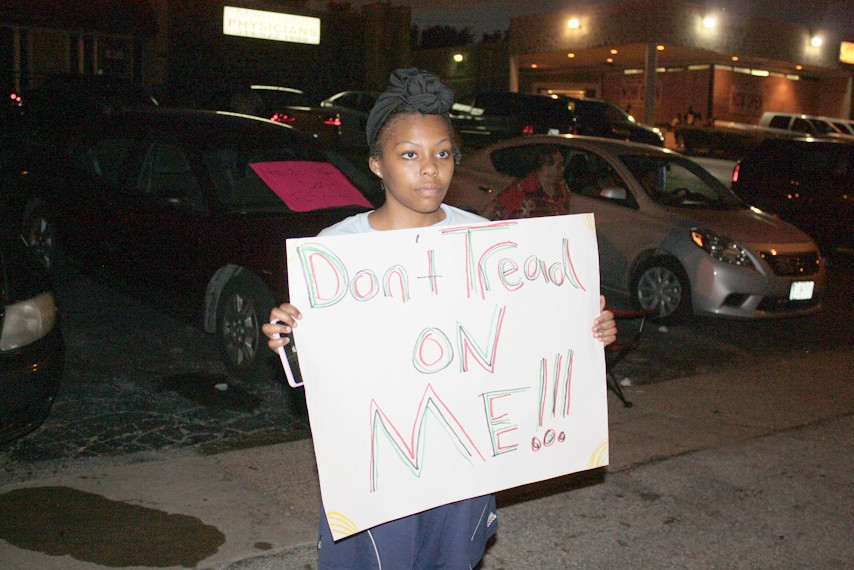 Doug Gillon
Doug Gillon
On Florissant Avenue, a ew version of an old message
A young woman’s sign reads, “Don’t Tread on Me.” Nearby, a gaggle of marchers walk in step behind an American Flag.
Earlier in the day, citizens formed groups with names like “We the People.” They railed about not paying taxes, about not trusting the government, and about ways to remove the people in power.
This isn’t the most recent iteration of the tea party, it’s a major part St. Louis area conversations reacting to the killing of Michael Brown.
At an artists’ collective meeting on Saturday, a mixed group of more than 250 ponders ways to improve their community.
“We need to march on Clayton where they can’t ignore us,” one voice said.
“We can start a recall on the Mayor with 2000 signatures,” said another.
“If this is what my tax money pays for, then lock me up ’cause I ain’t paying,” a third said to applause.
It doesn’t sound so different from calls to impeach the President or from the never-ending governmental distrust of far-right gun groups, but with one caveat.
These people aren’t rallying against what’s going to happen, they are speaking about what has happened.
The military police vehicles are real. So is the tear gas. And so are the government seizures. But they didn’t come for the guns, they came for the Maalox.
A nearby church has been raided twice by police because of its role as a safe house for demonstrators. Each time the police took Maalox solutions the group was using to neutralize tear gas. The reason given for the raid was “reports of squatting.”
While the past week has been the most extreme, the citizens of these St. Louis county townships like Ferguson almost universally speak of a much longer-term conflict between citizens and police, one that they will no longer tolerate.
But most of this group isn’t interested in fixing the problems with guns. The tools here are education, voter registration, and open communication.
So don’t call them the tea party. Maybe the coffee party. Or maybe what they call themselves, “We the People.”
To be continued.